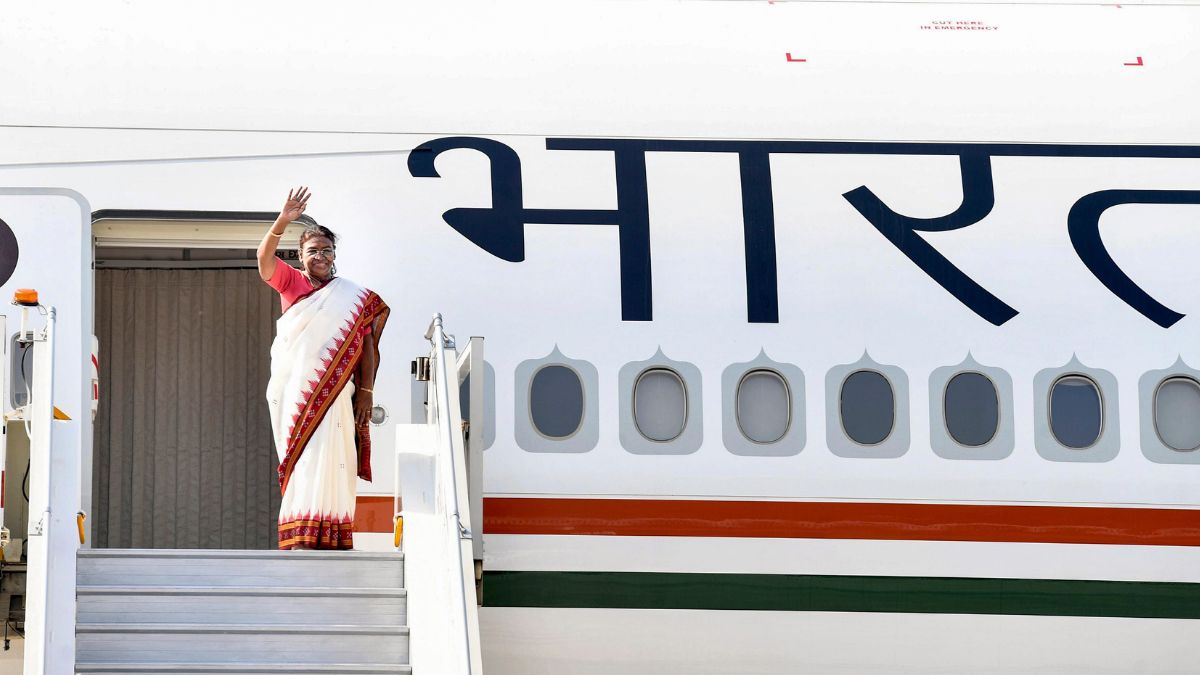President Droupadi Murmu is in Lisbon to hold high-level talks, marking 50 years of diplomatic relations between India and Portugal. Her visit marks a new chapter in the bilateral relations of the two countries. Murmu’s visit is the first presidential visit from India to Portugal in over a decade, highlighting the growing strategic focus on defence, trade, and cultural cooperation. Rooted in a shared colonial history—especially evident in Goa—the partnership today spans renewable energy, science, education, and more.
Here are five key things you need to know about the India-Portugal relationship.
1. Shared history & cultural ties
After Vasco da Gama’s expedition, Portugal ruled parts of western India—mainly Goa, Daman, and Diu—for over 450 years. This ended in 1961 with Operation Vijay, which liberated Goa. Diplomatic ties were strained after the annexation but were restored in 1974 following Portugal’s Carnation Revolution.
The colonial legacy left a unique cultural fusion, especially in Goan cuisine, festivals, language, and architecture. Today, according to the Ministry of External Affairs, the Indian diaspora in Portugal is estimated at around 125,000, with thousands of Goans holding Portuguese passports and a vibrant Indian community in Lisbon.
2. Rebuilding and strengthening ties
Since the early 2000s, India and Portugal have worked to strengthen ties. The first major visit came in 1998, when President KR Narayanan traveled to Lisbon to promote cooperation and move past colonial tensions.
In 2017, Portuguese PM António Costa—of Goan origin—visited India, followed by PM Modi’s historic visit to Portugal. He was the first Indian PM to visit the country. These visits elevated ties to a strategic partnership focused on innovation in technology, renewable energy, space, and blue economy.
3. Science, technology & start-up collaboration
India’s collaboration with Portugal in science and technology has become a key pillar of their partnership. In 2017, they launched the India–Portugal International Start-up Hub (IPISH) to connect their start-up ecosystems and facilitate joint innovation.
Impact Shorts
More ShortsSince then, joint innovation funds have supported co-development in clean energy, water management, health tech, and smart cities. Space cooperation has also grown, with Isro and Portugal’s space agency working on satellite data sharing and ocean monitoring. Both countries are also advancing projects in the blue economy, focusing on sustainable marine technology and ocean resource management.
4. Economic Engagement & EU Gateway
India and Portugal’s economic ties have steadily grown with trade. According to the Government of India, in FY 2022–23, bilateral trade stood at approximately $1.2 billion, with Indian exports at $1,005 million and Portuguese exports at $196 million.
India mainly exports textiles, agricultural products, metals, and machinery, while Portugal exports machinery, metals, chemicals, and optical instruments. Post-Brexit, Portugal is increasingly viewed as a gateway to the EU.
Especially since Portugal supports the long-pending India–EU Free Trade Agreement. Its stable economy, transparent regulations, and business-friendly environment make it an appealing base for Indian firms entering European markets.
5. Emerging defence collaboration
Although not a traditional defence partner, Portugal has recently opened channels for cooperation with India, particularly in maritime security and dual-use technologies. In 2022, the Indian Navy training ship INS Tarangini stopped at the port of Porto during its Lokayan voyage.
According to the Ministry of External Affairs, the crew engaged with the Portuguese Navy in professional exchanges on anti-piracy, maritime domain awareness, and visited naval ships and installations. In 2019, Portugal suggested an aviation and ship building partnership with India. “Portugal boasts a vibrant defence industry, and we are keen to collaborate with India under the Make in India initiative,” Portuguese Defence Minister João Gomes Cravinho said in an exclusive interview with The Economic Times during his visit to India last week.


)

)
)
)
)
)
)
)
)



